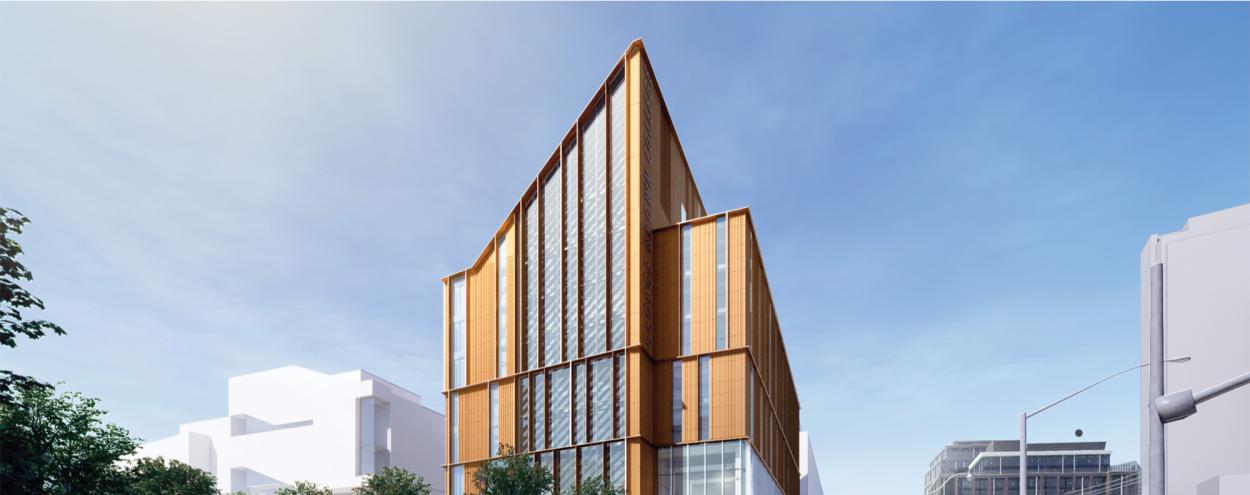
How the Brookfield Sustainability Institute is helping pave the way to Toronto’s greener future
Rising temperatures, melting glaciers, treacherous storms—the impacts of climate change are real and happening right now.
It’s no longer a question of whether or not to take action. This global crisis needs immediate, effective resolve, and it’s imperative that governments, businesses and industries work together to figure out how. That’s where the Brookfield Sustainability Institute comes in: providing smart solutions to make it happen.
Ambitious initiatives
“We attract the best people from around the world to work on applied projects that assist companies, governments, non-profits or foundations doing work in sustainability, and try to create solutions that transform the marketplace,” says Luigi Ferrara, BSI’s chair and CEO.
This first-of-its-kind college-based centre of excellence in Ontario tackles challenges posed by climate change, bringing together knowledge and expertise from a wide range of professionals, business leaders, scholars, community activists and climate change experts to develop viable ways to achieve net zero.
And as Canada’s target is to reach zero emissions by 2050, with Toronto aiming for 2040—one of the most ambitious goals in North America—partners are eager to collaborate with BSI to pursue their own sustainability initiatives. “They need people who can help provide and teach them new approaches, new techniques, new ways of doing things,” says Ferrara.
Tackling real-world issues
Companies like the Royal Bank of Canada (RBC) are already tapping into BSI’s wealth of talent and resources. RBC’s Climate Action Institute recently worked with BSI on a new report on how to reduce emissions created by the housing industry. “Decarbonization of the built environment is an enormous task,” says Ferrara.
To demonstrate the types of buildings that must be constructed in order to reach Toronto’s net-zero goals, BSI will soon be headquartered at George Brown College’s Limberlost Place. The 10-storey structure on Toronto’s waterfront will be the first mass-timber and low-carbon building in Ontario. “Limberlost Place has pioneered a new structural system for wood buildings with a passive mechanical design that performs at net-zero carbon,” says Ferrara.
BSI is also currently working on such sustainable projects as developing a circular-fashion apparel brand, creating portable energy solutions for remote communities and designing eco-conscious neighbourhoods. The aim is to apply these real-world solutions as soon as possible.
Empowering future leaders
Each of these projects benefits from George Brown College’s agile academic environment, as BSI is able to train workers on the latest technologies. The integrated program helps equip new graduates with the skills they need to confront climate change. Students apply what they have learned in the classroom to solve real-world problems for companies.
“If you bring students together with employers to work on solutions for communities, innovation happens in the companies themselves,” says Ferrara. “It’s a learning paradigm with tremendous power—a new type of innovator that we need moving forward.”
For George Brown, BSI strengthens its commitment to providing graduates with the ability to innovate, adapt and thrive in a rapidly changing world.
“The Brookfield Sustainability Institute is one of the many exciting new developments underway at George Brown College, both in terms of its innovation and its environmental impact,” says Dr. Gervan Fearon, president of George Brown College. “The institute highlights the college’s aim to be a sustainability leader and a force for positive environmental change locally and globally.”
Leading future innovation
Businesses and organizations that partner with BSI will certainly help move the dial on climate change, but they’ll also be at the forefront of innovation—both equally critical in keeping the Canadian market competitive. “We work with a global perspective,” says Ferrara. “We’ll have the solutions that are in demand in the future.”
From agriculture and fashion to energy transportation and suburban development, BSI aims to create a portfolio of beneficial practices for those looking to achieve their sustainability goals. Among those is digital transformation, which will be instrumental in achieving sustainable development goals and environmental, social and governance strategies locally, nationally and globally.
“People often don’t realize how powerful digital reframing of your company can be towards reducing waste or impact on the planet,” says Ferrara. For example, the fast-fashion business puts production before sales, which often leads to an abundance of inventory—resulting in overstock ending up in landfills.
A fully digitalized sales and production process changes all that. “You take orders to manufacture on demand, and are manufacturing without waste or excess inventory,” says Ferrara. But advances in fashion, or in any business for that matter, won’t happen in isolation.
With BSI’s help, the knowledge learned and innovation applied in one sector will be shared across the many sectors of the economy. Climate change doesn’t recognize borders, and nor should its solutions.
